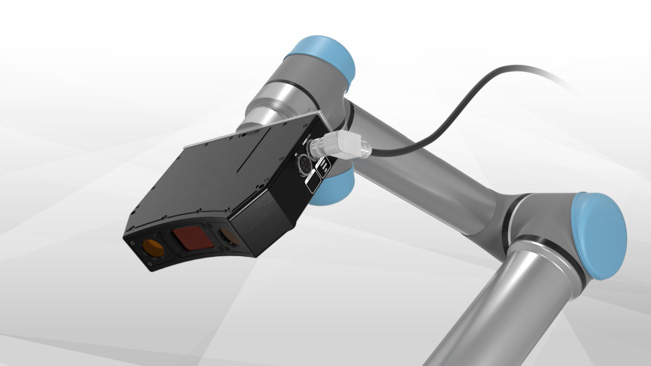Canadian 3D scanning and mesh processing expert Polyga has officially released compact versions of its HDI 3D scanner.
Following on from its HDI Advance series of 3D Scanners, Polyga has launched the HDI Compact. Designed for industrial quality results with frustration free operation, the new range of three scanners mark a step toward accessibility with their lighter, handheld forms.
The new scanners all carry the HDI Compact name, but differentiate from one another with the model numbers C109, C210 and C506. Reading through the specifications, we’re unsure what exactly the names allude to, though the camera tech included in each scales with the numbers from (approximately) 1 through 5 megapixels.
Touting two 1.3 monochrome megapixel cameras, the C109 is the basic model of the new lineup. With a capture accuracy of 34 microns and average 985,000 points per scan and 1.97-million polygons per scan, its still an eminently sophisticated scanning apparatus.
Sitting in the middle of the three scanners is the C210. Specification-wise, it boasts a slight jump in speed and minuscule increase in accuracy, but much larger field of view and doubling in the number of average points and polygons per scan.
And then there is the C506 which, while virtually on par with the C109 for scan speed at 333 milliseconds, blows the other two out of the water for scan resolution. Through a 27 x 45 – 30 x 45mm field of view window (the smallest of the three new scanners’) it can capture scans up to 12 microns accurate with 5 million points and 10 million polygons.
However, such accuracy doesn’t come cheap. At $9,990 dollars for the C109, $11,990 for the C210 and $13,990 for the C506, the trio of HDI Compacts are definitely priced for the professional market.

Step Into the Light: Polyga HDI Compact 3D Scanner
Targeting professional results from consumer-level simplicity, the premise of the technology behind Polyga’s scanners is straightforward.
Using a blue LED light, the HDI Compact projects patterns onto the scanning object. Distortions in these patterns are then registered by the scanner, and only when this data is recorded from every angle can a 3D model of the object be complied in the HDI’s accompanying software.
The company claims this fast field scanning tech makes it ideal standalone, or for integration into larger systems. To this, the design of the HDI Compact is suitable for rigging many of them into an array for quicker scans of larger objects.
Accompanying the scanners is Polyga’s proprietary scan processing software, FlexScan3D. Capable of stitching and repairing the scan data before any 3D model is committed to file, it can also export models as 3D printable OBJ and STL file formats.
After the giddy debut of new 3D printers out of CES, we’re glad the new product bandwagon rolls on. What’s next?
Source: Press release
License: The text of "Polyga Reveals New Line of Compact Handheld 3D Scanners" by All3DP is licensed under a Creative Commons Attribution 4.0 International License.